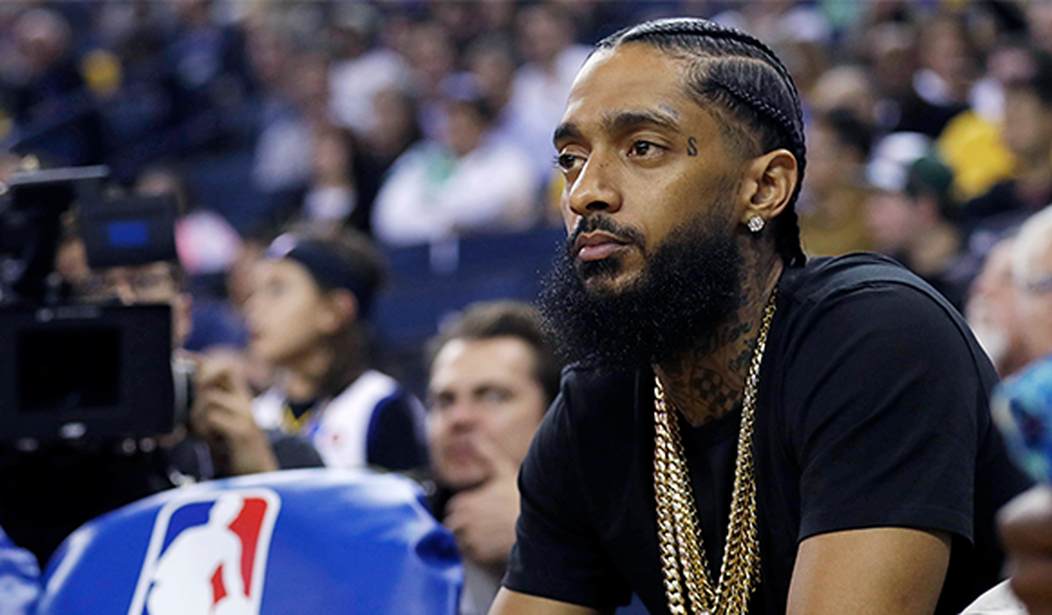A basic law in physics says that energy cannot be created or destroyed. It can only be changed from one form to another.
The same rule, I think, applies to society.
There is a given amount of human energy. Is it going to be directed creatively? Or destructively?
We see both at play in the life and death of rapper Nipsey Hussle.
Hussle was a born entrepreneur. According to a newspaper account, it's what earned him his nickname.
He was polishing shoes at age 11 to earn money. Then began his music. And then he moved into investments.
And then, at age 33, he was gunned down in front of his clothing store, Marathon Clothing, on the site of a strip mall in South Los Angeles that he and real estate developer David Gross had planned to develop through the new Opportunity Zone initiative.
Opportunity Zones became law as part of the Tax Cuts and Jobs Act of 2017.
The idea was to provide for trillions of dollars of capital sitting in various types of investments -- stocks, real estate, etc. -- to be redirected into investments in economically distressed areas around the nation by allowing the gains to be realized tax-free.
The Treasury Department designated 8,700 zones across the USA that could qualify, which included the strip mall where Hussle's clothing store was located in South LA.
Hussle and Gross purchased the mall and planned to set up the "Our Opportunity" fund to develop the property into residential units and shops.
Their concept was to incorporate small investors through crowdfunding to partner with larger investors. This would enable residents of the local community to participate as investors and purchase homes in the residential units.
Recommended
Hussle's concern was that the Opportunity Zone initiative might be successful in directing capital to distressed neighborhoods, but investors coming from outside the community would have little interest in the locals.
The vision of Hussle and Gross was that the Opportunity Zone initiative be a community development initiative as well as a purely economic development initiative.
According to Sean Parker, the first president of Facebook, and one of the visionaries of Opportunity Zones, "Instead of having government hand out pools of taxpayer dollars, you have savvy investors directing money into projects they think will succeed."
Hussle and Gross added the crucial additional dimension to structure the deals to assure participation of and benefit to the local communities.
This is public policy at its best and most creative. Structure policies that will encourage personal initiative and creativity. This is the way we will fix the broken parts of America that have been left behind.
What we then witnessed was what happens when the destructive energy within the community proves too powerful for the creative energy.
Hussle was shot and killed.
According to the Los Angeles Times, Hussle's murder was one of 29 that have occurred so far this year in South Los Angeles.
Hussle's story is a microcosm of the racial challenges of the nation.
How do we overcome the destructive energy and transform it to creative energy?
Hussle was showing the way. But his efforts fell short of overcoming the too-vast destructive energy long hovering in South LA and that hovers in similar neighborhoods across America.
From what I read, David Gross will continue their work and move forward with the Our Opportunity fund. Good news.
The complex history of black America, coupled with poor welfare state policies, has left a legacy of hard, destructive energy in our inner cities.
More social entrepreneurs, like Nipsey Hussle and David Gross, and political leaders like Sen. Tim Scott, who championed the Opportunity Zones initiative from its inception and is now traveling across America to get it implemented, can turn things around.
With the right policies and the right people, the creative energy will overcome the destructive.
Star Parker is an author and president of CURE, Center for Urban Renewal and Education. Contact her at www.urbancure.org

























Join the conversation as a VIP Member